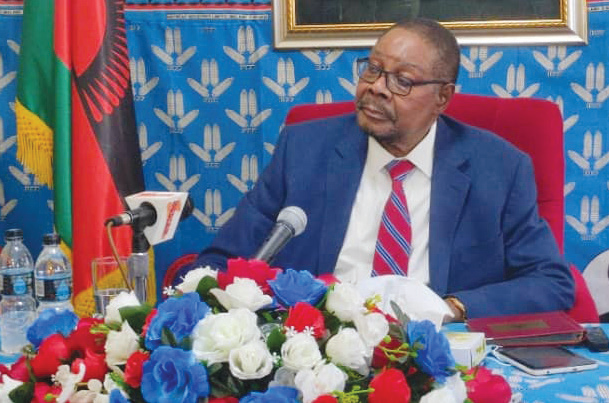New IMF programme pivotal moment for Tonse Alliance
The Malawi government and the International Monetary Fund are expected to discuss the development of a new economic programme. The talks come at a time when the Tonse alliance-led administration faces the unenviable task of revitalising an economy from years of stagnating growth.
The Alliance should approach the forthcoming discussions with tact and careful reflection, considering the impact of the fund’s conditionality on Malawi’s national development plans. More so, when the country is still reeling from the economic fallout caused by the Covid-19 pandemic and the ongoing Russia-Ukraine war.
As it stands now, interest rates and inflation are rising and the country is reportedly on the brink of debt distress. Those are never good signs when the government wants to spur economic activity and spur growth.
The Tonse Alliance’s task in these discussions will be to balance the needs of the IMF while simultaneously serving the economic interests of Malawians without compromising the nine-party coalition’s political aspirations.
On the economic side, the Tonse Alliance will have to secure a programme with flexible conditions that can allow the nine-party coalition to successfully implement its campaign promises without worsening the country’s debt.
That is easier said and done. In the past agreement, the Tonse Alliance agreed to introduce Value Added Tax (VAT) on cooking oil and assorted financial services to boost revenue collection.
Boosting revenue generation was very important at the time, considering the government had lost a part of its revenue base from the previous budget when it raised the minimum wage and revised the tax brackets.
It is highly unlikely that the Tonse administration would have funded some of its campaign promises without the taxes on cooking oil and financial services. Unfortunately, consumers bore the brunt of the newly introduced taxes.
Consumers shouldered the cost of providing subsidised fertiliser and seed to rural farmers. It is a decision that had merit. The government is duty-bound to provide social protection for its most vulnerable populations.
The problem is that tax-based financing creates a negative ripple effect on taxpayers. Taxpayers have to pay more, a development that reduces their buying power, and by extension, reduces economic activity and slows down growth.
Subdued growth creates socio-economic challenges such as rampant unemployment and poor delivery of social services such as health and education. It is a complex problem with no simple solutions.
A detailed and well-crafted ECF programme will create an opportunity for Malawi to get the funds to finance some of its key development programmes. The fund will also complement Malawi’s debt management strategy.
No one in his right mind would dispute that Malawi has failed to create a sustainable debt management plan so far. Malawi needs all the expertise it can get. The country cannot afford to be lurching from one crisis to another.
The IMF can provide sound advice on the policy direction the Tonse Alliance can take, especially on developing development programmes that can be financed without compromising taxpayers’ income.
The fund also has the confidence of the donor community. An IMF-supported plan, if carefully implemented, can unlock the doors to more donor financing. If the leaders of the alliance are honest with themselves, they know this is the best way out of Malawi’s economic crisis.
The Tonse Alliance is rapidly losing the goodwill it has with the public. It cannot afford to alienate taxpayers, some of whom are already fuming with the upward revisions of their PAYE contributions under the tax regime introduced in the 2022/23 budget.
Likewise, reducing the scope of the AIP will alienate smallholder farmers who desperately need cheap fertiliser to feed their families. This complex trade-off between raising funds through taxes and cutting spending by freezing some programmes has been a constant thorn in the alliance’s side.
Chakwera and his lieutenants in the nine-party coalition can avoid this trade-off by convincing the fund to give it more debts. It’s a very tall order considering the risk of debt distress.
If Malawi cannot convince the fund, the multilateral financial institution can still prove an important ally in developing possible solutions to contain Malawi’s rising debt burden.
All in all, the next ECF programme and the conditions that will be attached to it will be a pivotal moment as the Alliance strives to contain the economic malaise that has rocked the country.





